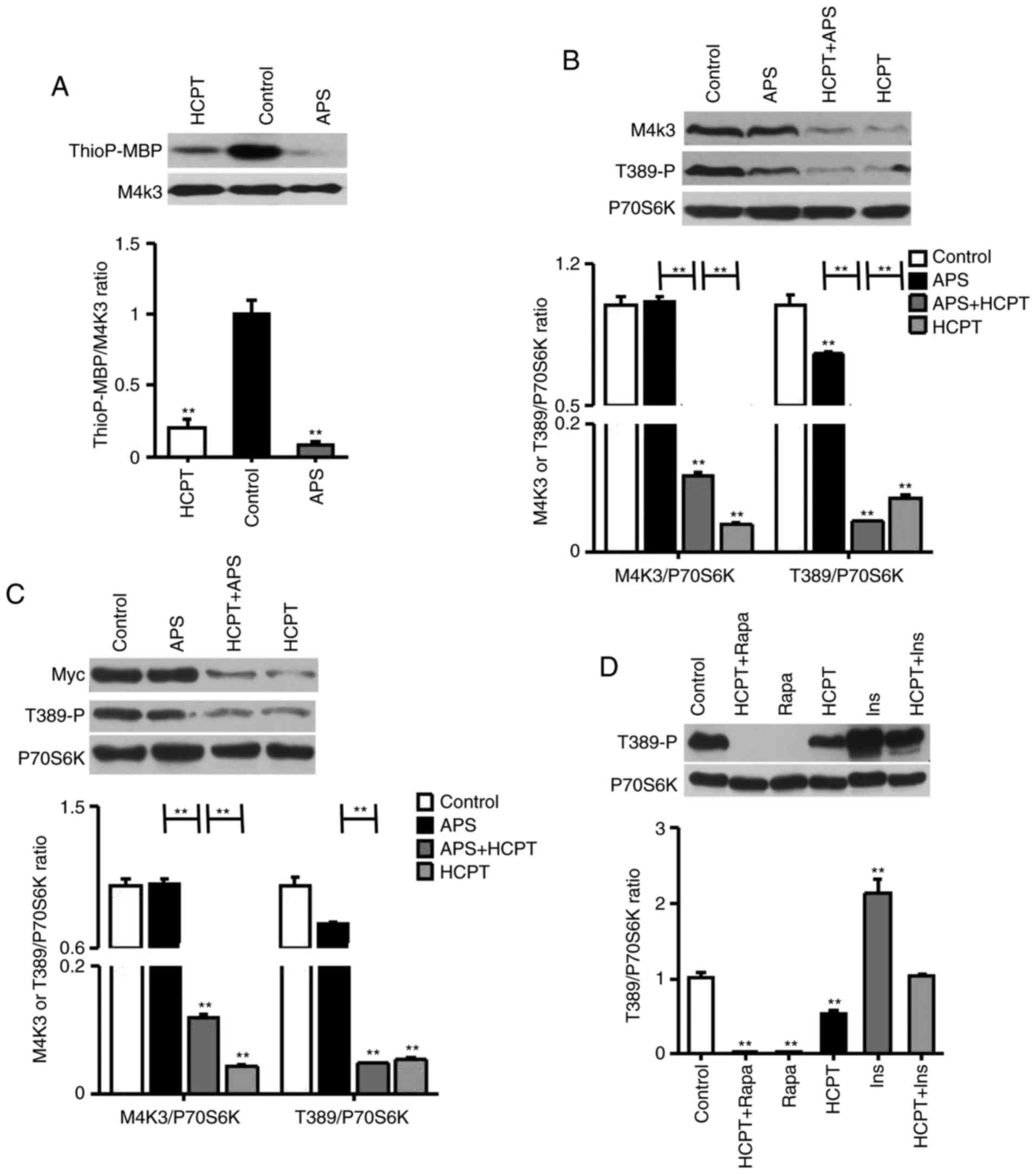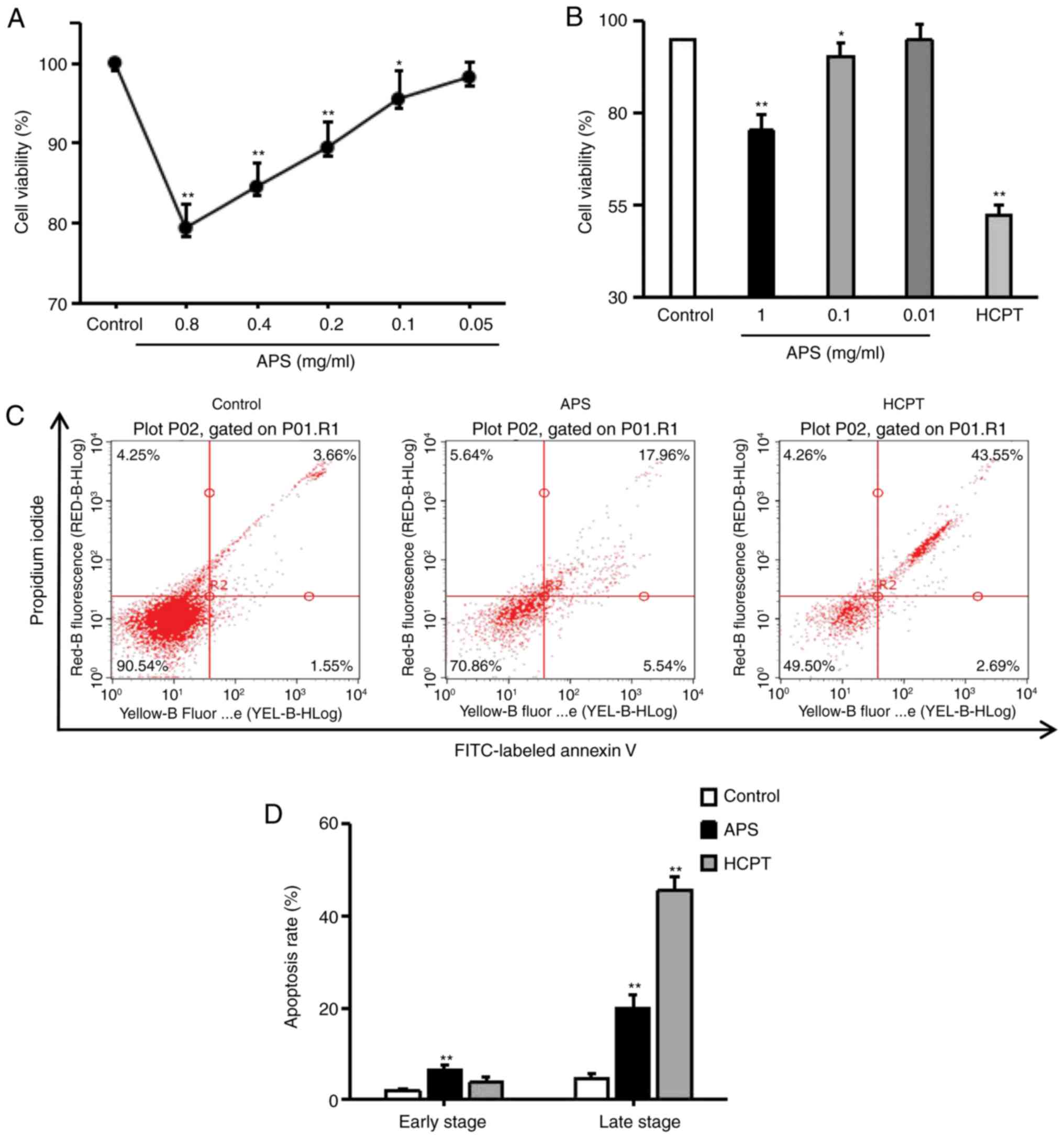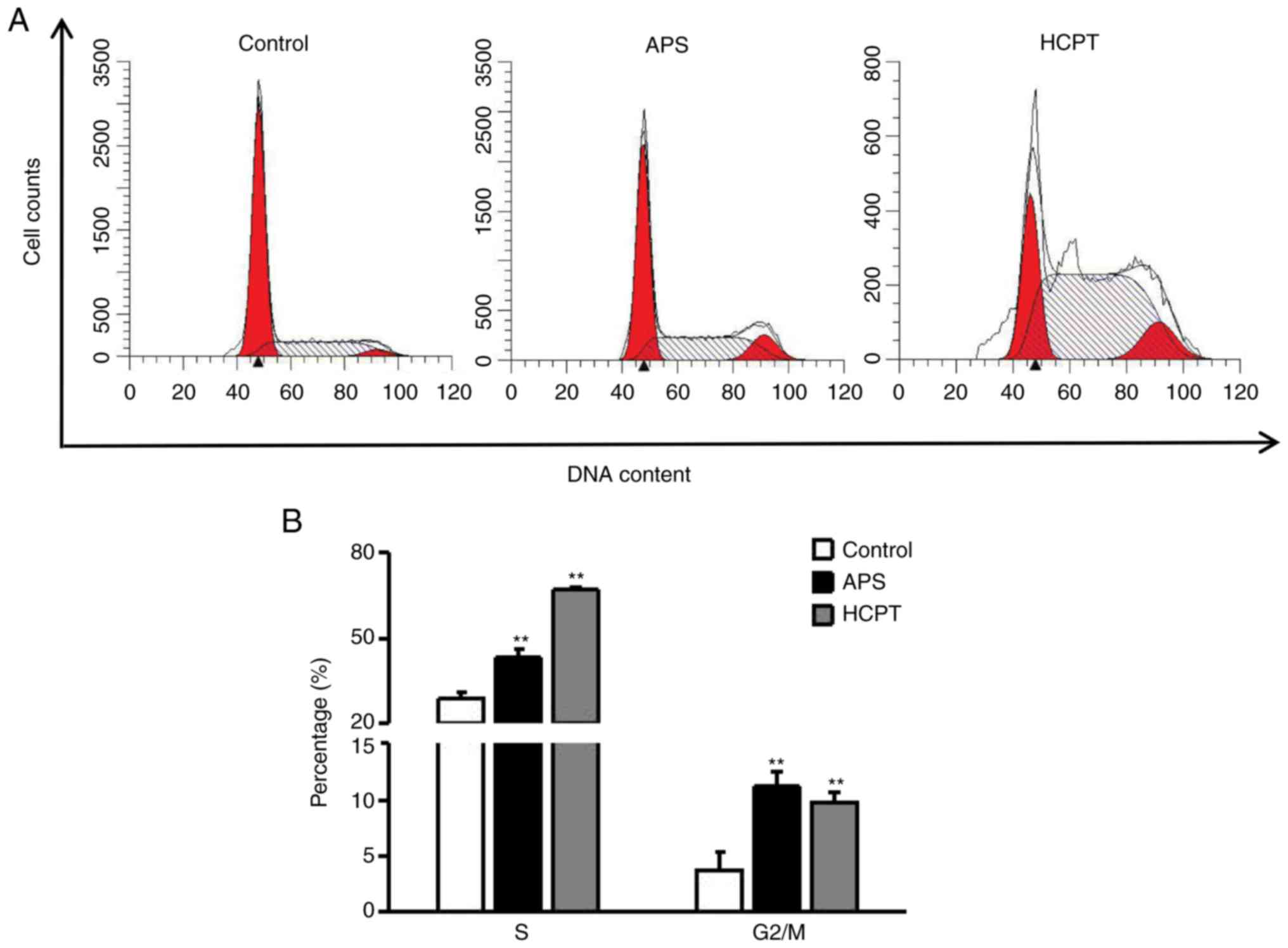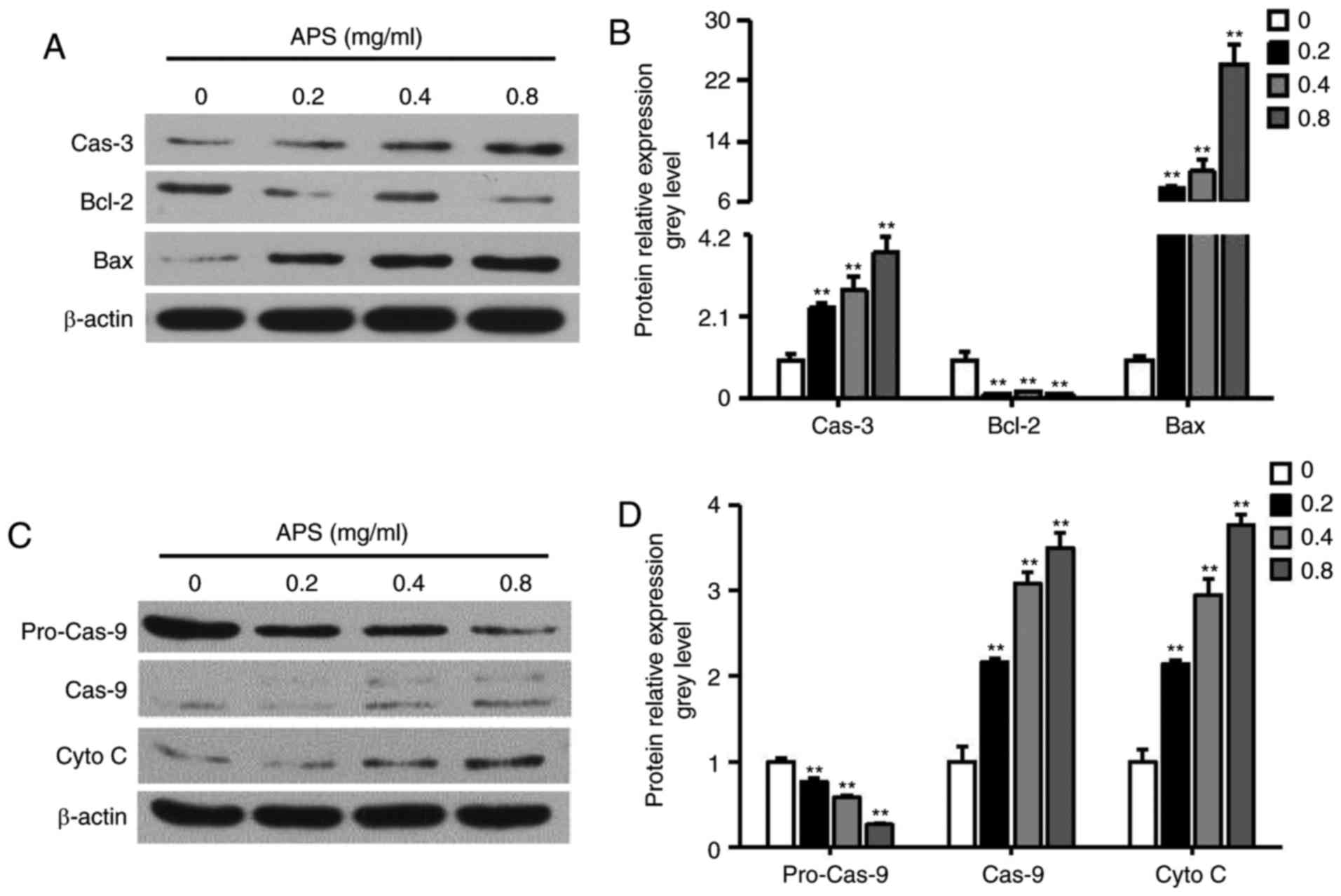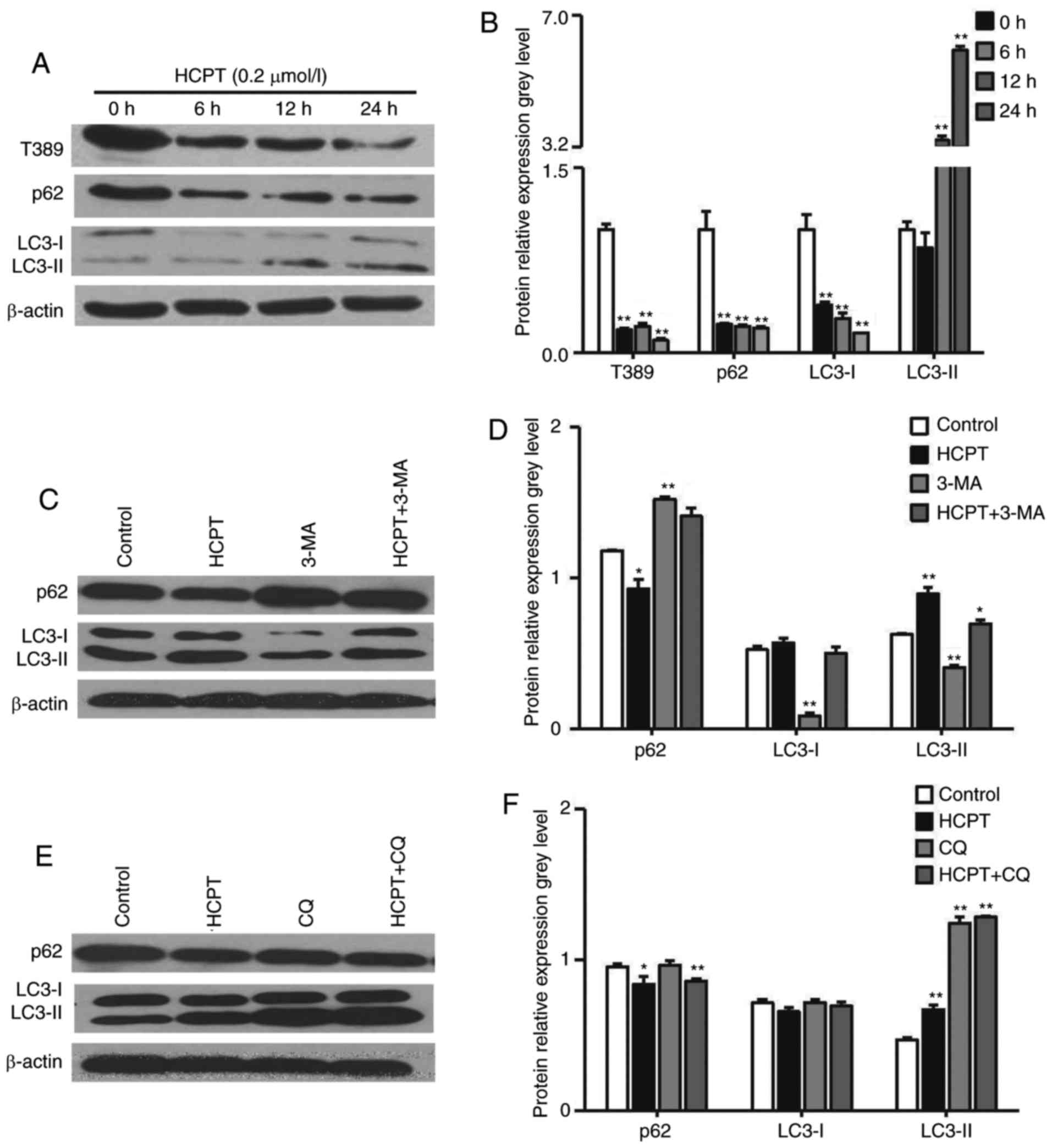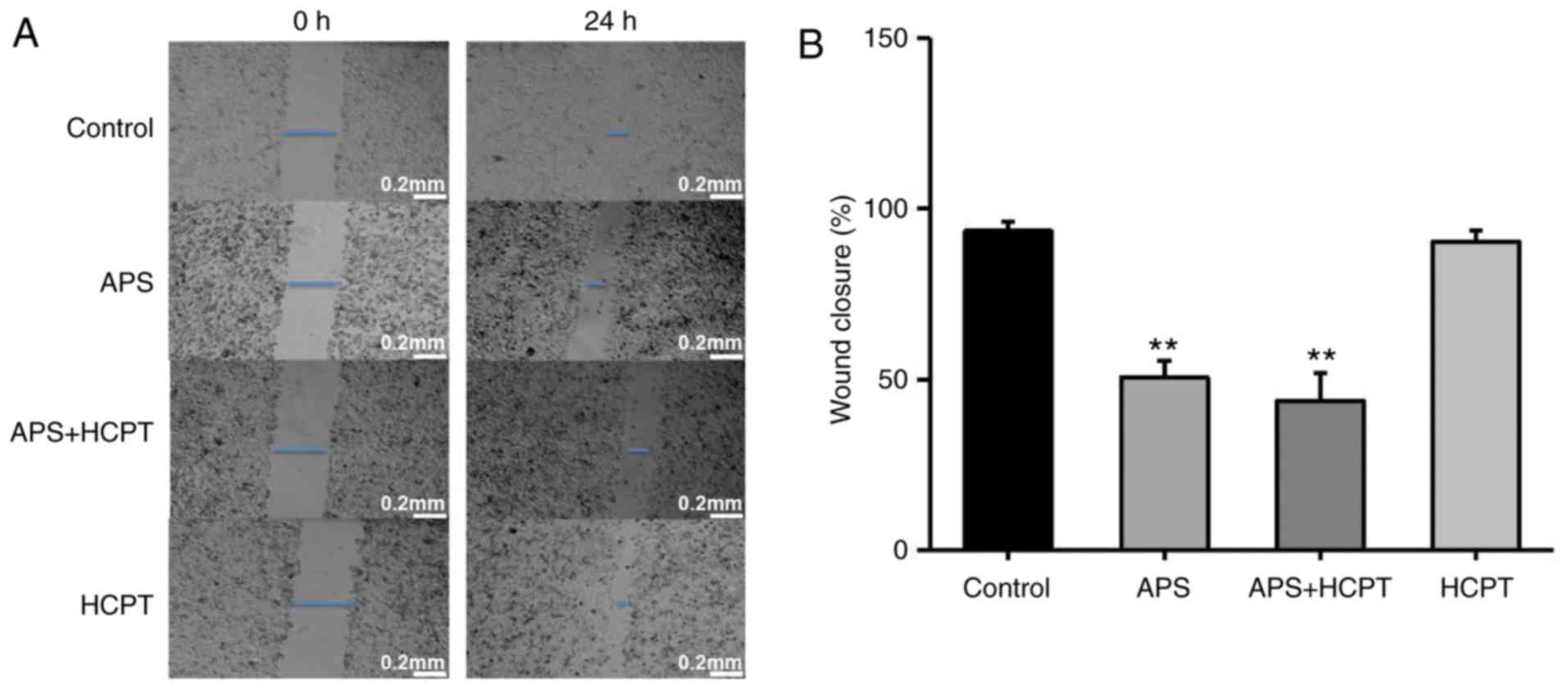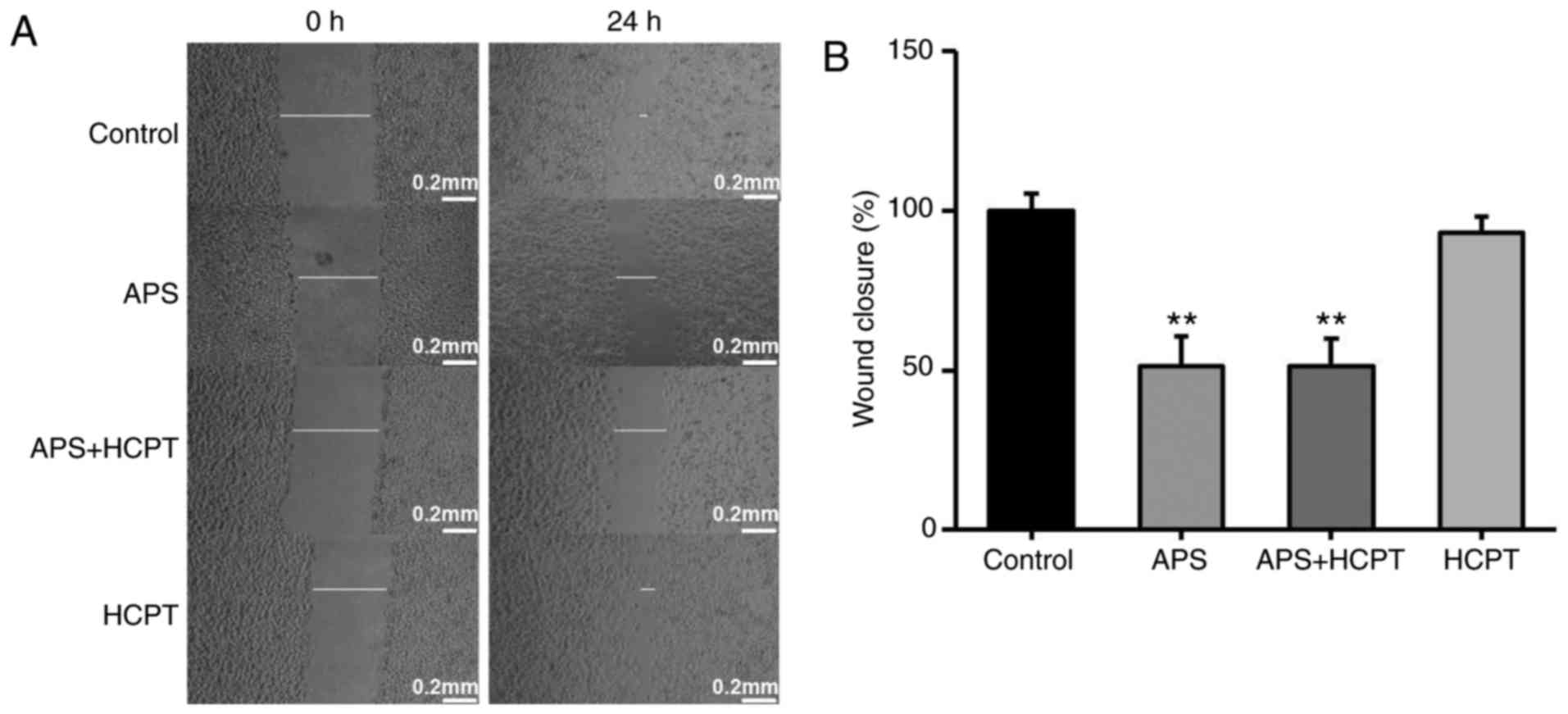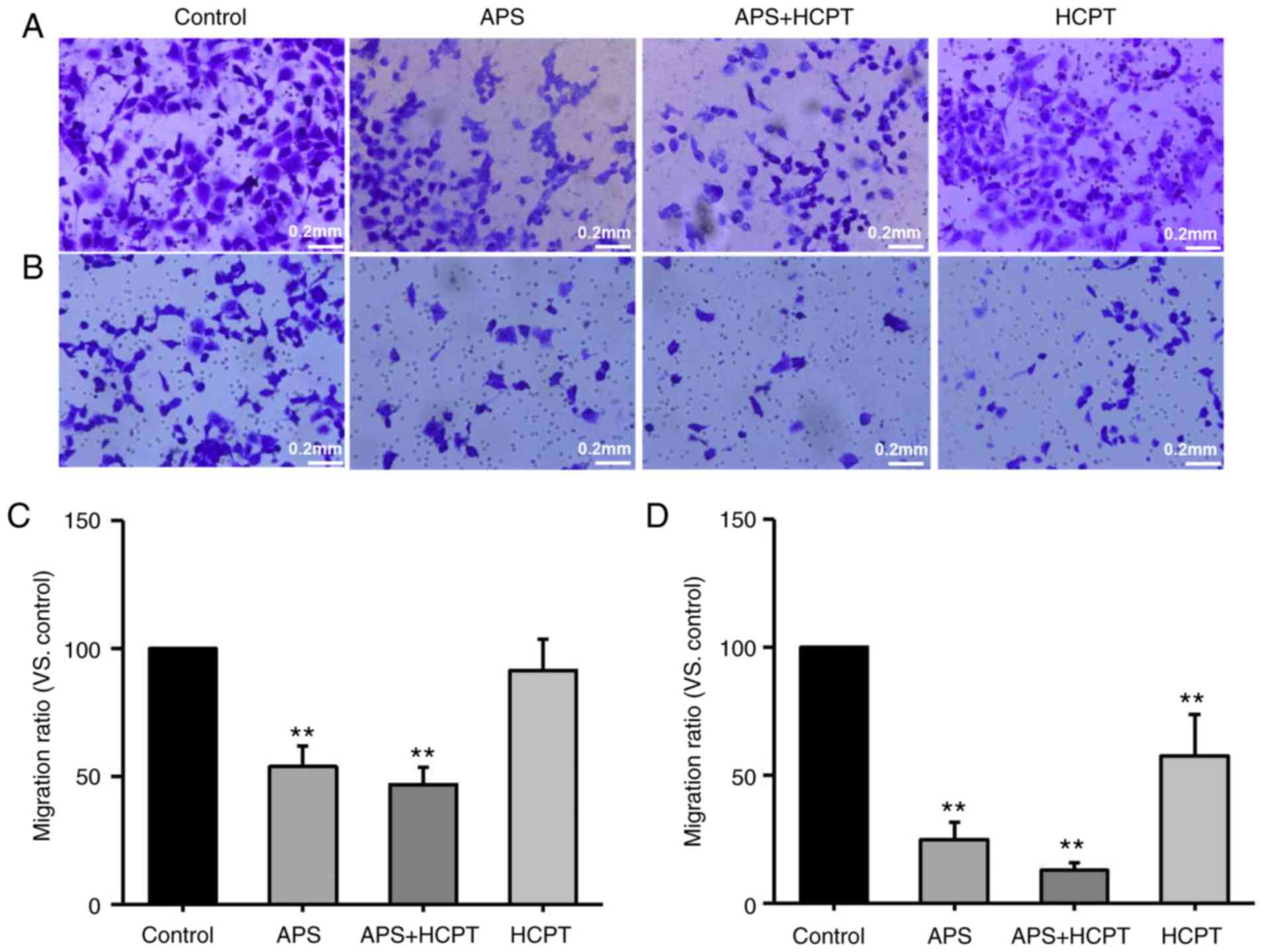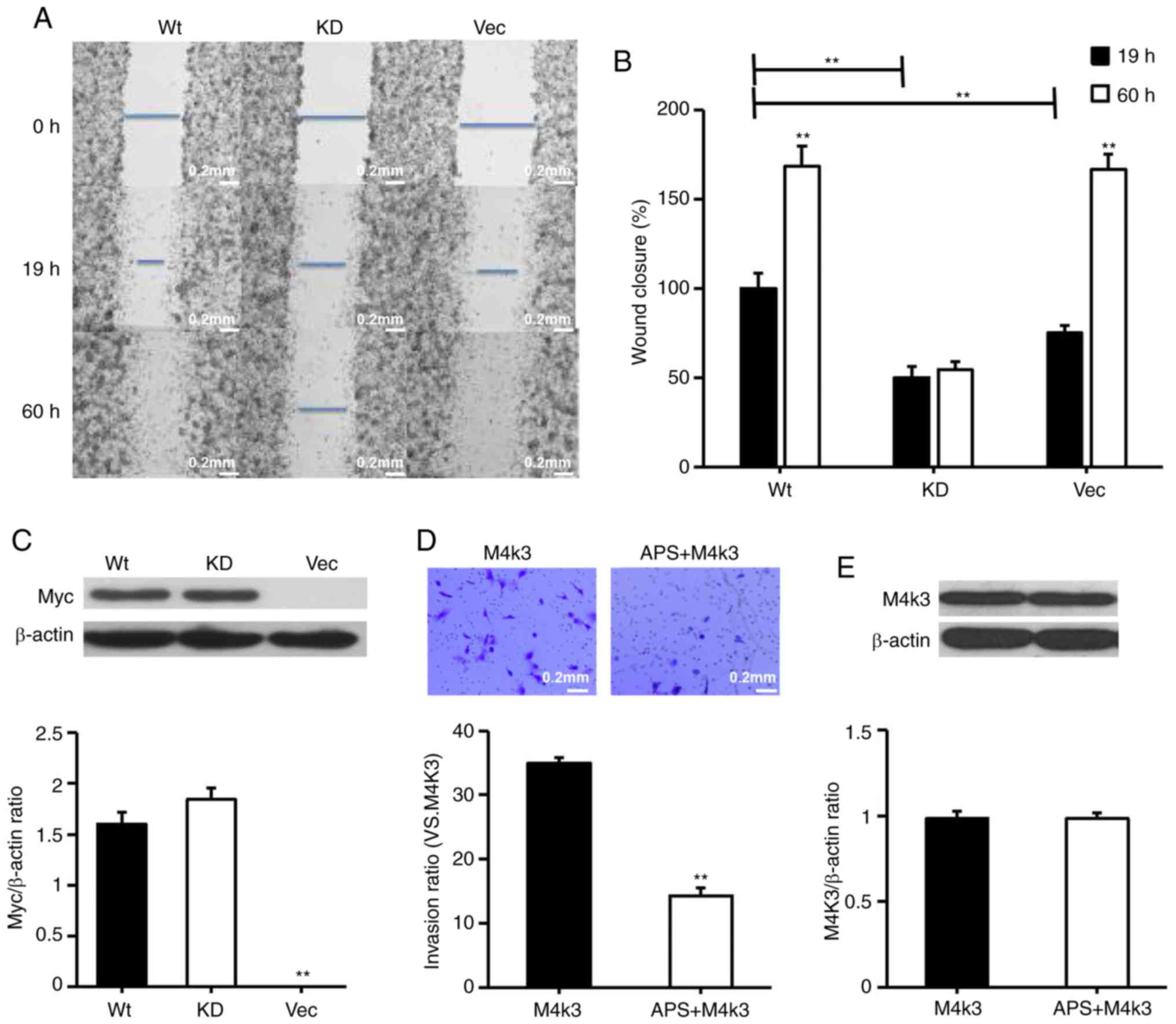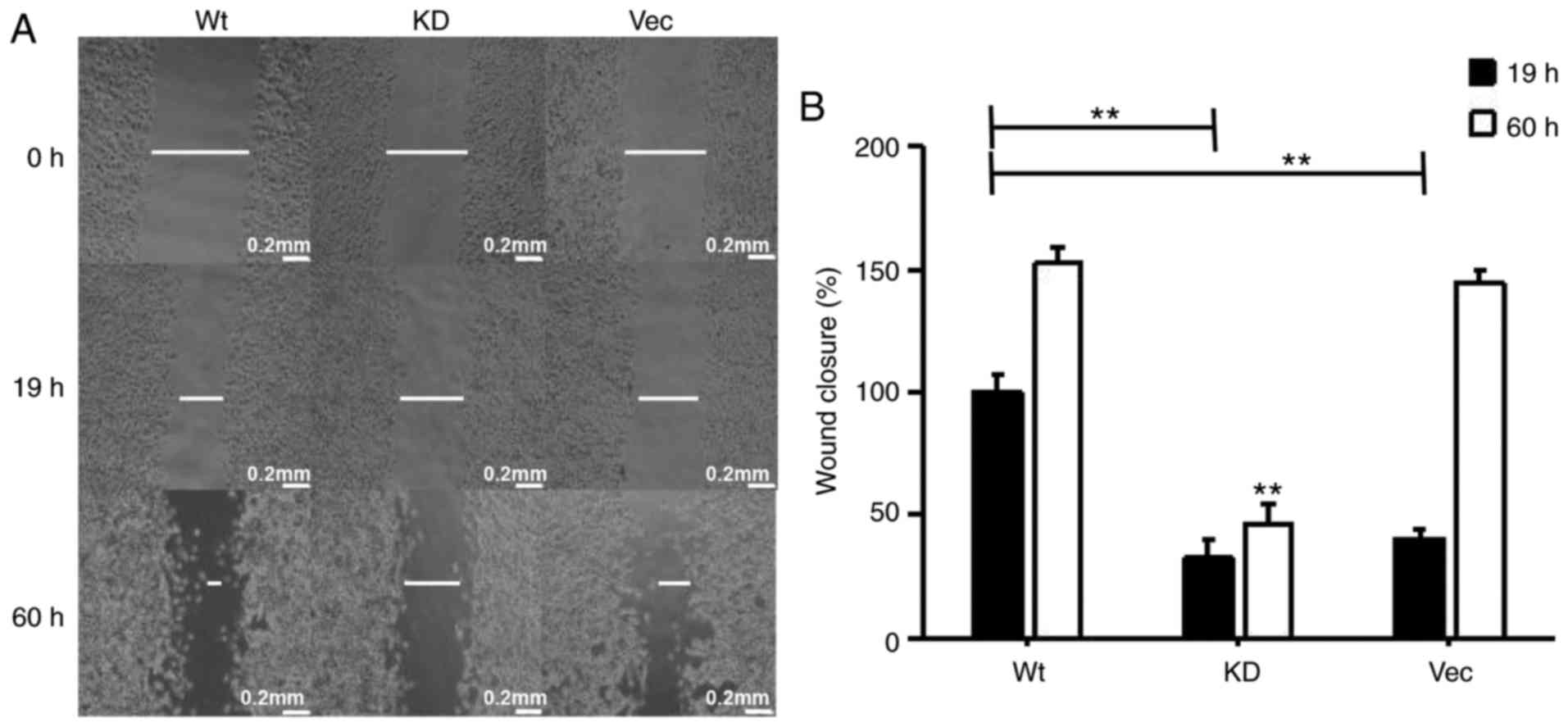|
1
|
Torre LA, Bray F, Siegel RL, Ferlay J,
Lortet-Tieulent J and Jemal A: Global cancer statistics, 2012. CA
Cancer J Clin. 65:87–108. 2015. View Article : Google Scholar : PubMed/NCBI
|
|
2
|
Kanzaki R, Higashiyama M, Fujiwara A,
Tokunaga T, Maeda J, Okami J, Kozuka T, Hosoki T, Hasegawa Y,
Takami M, et al: Occult mediastinal lymph node metastasis in NSCLC
patients diagnosed as clinical N01 by preoperative integrated
FDG-PET/CT and CT: Risk factors, pattern, and histopathological
study. Lung Cancer. 71:333–337. 2011. View Article : Google Scholar
|
|
3
|
Spizzo G, Seeber A and Mitterer M: Routine
use of pamidronate in NSCLC patients with bone metastasis: Results
from a retrospective analysis. Anticancer Res. 29:5245–5249.
2009.
|
|
4
|
Fidler IJ, Kim SJ and Langley RR: The role
of the organ micro-environment in the biology and therapy of cancer
metastasis. J Cell Biochem. 101:927–936. 2007. View Article : Google Scholar
|
|
5
|
Shiraga M, Yano S, Yamamoto A, Ogawa H,
Goto H, Miki T, Miki K, Zhang H and Sone S: Organ heterogeneity of
host-derived matrix metalloproteinase expression and its
involvement in multiple-organ metastasis by lung cancer cell lines.
Cancer Res. 62:5967–5973. 2002.PubMed/NCBI
|
|
6
|
Nguyen DX and Massagué J: Genetic
determinants of cancer metastasis. Nat Rev Genet. 8:341–352. 2007.
View Article : Google Scholar : PubMed/NCBI
|
|
7
|
Chen M, Du Y, Qui M, Wang M, Chen K, Huang
Z, Jiang M, Xiong F, Chen J, Zhou J, et al: Ophiopogonin B-induced
autophagy in non-small cell lung cancer cells via inhibition of the
PI3K/Akt signaling pathway. Oncol Rep. 29:430–436. 2013. View Article : Google Scholar :
|
|
8
|
Saxton RA and Sabatini DM: mTOR Signaling
in Growth, Metabolism, and Disease. Cell. 169:361–371. 2017.
View Article : Google Scholar : PubMed/NCBI
|
|
9
|
Han B, Cui H, Kang L, Zhang X, Jin Z, Lu L
and Fan Z: Metformin inhibits thyroid cancer cell growth,
migration, and EMT through the mTOR pathway. Tumour Biol.
36:6295–6304. 2015. View Article : Google Scholar : PubMed/NCBI
|
|
10
|
Zhang Y, Zhang HE and Liu Z: MicroRNA-147
suppresses proliferation, invasion and migration through the
AKT/mTOR signaling pathway in breast cancer. Oncol Lett.
11:405–410. 2016. View Article : Google Scholar : PubMed/NCBI
|
|
11
|
Zhang X, Ding Z, Mo J, Sang B, Shi Q, Hu
J, Xie S, Zhan W, Lu D, Yang M, et al: GOLPH3 promotes glioblastoma
cell migration and invasion via the mTOR-YB1 pathway in vitro. Mol
Carcinog. 54:1252–1263. 2015. View
Article : Google Scholar
|
|
12
|
Dai L, Zhuang L and Zhang B, Wang F, Chen
X, Xia C and Zhang B: DAG/PKCδ and IP3/Ca2+/CaMK IIβ operate in
parallel to each other in PLCγ1-driven cell proliferation and
migration of human gastric adenocarcinoma cells, through
Akt/mTOR/S6 pathway. Int J Mol Sci. 16:28510–28522. 2015.
View Article : Google Scholar : PubMed/NCBI
|
|
13
|
Findlay GM, Yan L, Procter J, Mieulet V
and Lamb RF: A MAP4 kinase related to Ste20 is a nutrient-sensitive
regulator of mTOR signalling. Biochem J. 403:13–20. 2007.
View Article : Google Scholar : PubMed/NCBI
|
|
14
|
Yan L, Mieulet V, Burgess D, Findlay GM,
Sully K, Procter J, Goris J, Janssens V, Morrice NA and Lamb RF:
PP2A T61 epsilon is an inhibitor of MAP4K3 in nutrient signaling to
mTOR. Mol Cell. 37:633–642. 2010. View Article : Google Scholar : PubMed/NCBI
|
|
15
|
Zhao B, Han H, Chen J, Zhang Z, Li S, Fang
F, Zheng Q, Ma Y, Zhang J, Wu N and Yang Y: MicroRNA let-7c
inhibits migration and invasion of human non-small cell lung cancer
by targeting ITGB3 and MAP4K3. Cancer Lett. 342:43–51. 2014.
View Article : Google Scholar
|
|
16
|
Park J, Lee J and Choi C: Evaluation of
drug-targetable genes by defining modes of abnormality in gene
expression. Sci Rep. 5:135762015. View Article : Google Scholar : PubMed/NCBI
|
|
17
|
Hsu CP, Chuang HC, Lee MC, Tsou HH, Lee
LW, Li JP and Tan TH: GLK/MAP4K3 overexpression associates with
recurrence risk for non-small cell lung cancer. Oncotarget.
7:41748–41757. 2016. View Article : Google Scholar : PubMed/NCBI
|
|
18
|
Fu J, Wang Z, Huang L, Zheng S, Wang D,
Chen S, Zhang H and Yang S: Review of the botanical
characteristics, phytochemistry, and pharmacology of Astragalus
membranaceus (Huangqi). Phytother Res. 28:1275–1283. 2014.
View Article : Google Scholar : PubMed/NCBI
|
|
19
|
Liu Y, Liu F, Yang Y, Li D, Lv J, Ou Y,
Sun F, Chen J, Shi Y and Xia P: Astragalus polysaccharide
ameliorates ionizing radiation-induced oxidative stress in mice.
Int J Biol Macromol. 68:209–214. 2014. View Article : Google Scholar : PubMed/NCBI
|
|
20
|
Han R: Highlight on the studies of
anticancer drugs derived from plants in China. Stem Cells.
12:53–63. 1994. View Article : Google Scholar : PubMed/NCBI
|
|
21
|
Allen JJ, Li M, Brinkworth CS, Paulson JL,
Wang D, Hübner A, Chou WH, Davis RJ, Burlingame AL, Messing RO, et
al: A semisynthetic epitope for kinase substrates. Nat Methods.
4:511–516. 2007. View Article : Google Scholar : PubMed/NCBI
|
|
22
|
Mizushima N and Yoshimori T: How to
interpret LC3 immunoblotting. Autophagy. 3:542–545. 2007.
View Article : Google Scholar : PubMed/NCBI
|
|
23
|
Che X, Yan H, Sun H, Dongol S, Wang Y, Lv
Q and Jiang J: Grifolin induces autophagic cell death by inhibiting
the Akt/mTOR/S6K pathway in human ovarian cancer cells. Oncol Rep.
36:1041–1047. 2016. View Article : Google Scholar : PubMed/NCBI
|
|
24
|
Liu Z, Zheng Q, Chen W, Wu M, Pan G, Yang
K, Li X, Man S, Teng Y, Yu P and Gao W: Chemosensitizing effect of
Paris Saponin I on Camptothecin and 10-hydroxycamptothecin in lung
cancer cells via p38 MAPK, ERK, and Akt signaling pathways. Eur J
Med Chem. 125:760–769. 2017. View Article : Google Scholar
|
|
25
|
Yuan ZF, Tang YM, Xu XJ, Li SS and Zhang
JY: 10-Hydroxycamptothecin induces apoptosis in human neuroblastoma
SMS-KCNR cells through p53, cytochrome c and caspase 3 pathways.
Neoplasma. 63:72–79. 2016. View Article : Google Scholar
|
|
26
|
Liu Z, Zhu G, Getzenberg RH and Veltri RW:
The upregulation of PI3K/Akt and MAP kinase pathways is associated
with resistance of microtubule-targeting drugs in prostate cancer.
J Cell Biochem. 116:1341–1349. 2015. View Article : Google Scholar : PubMed/NCBI
|
|
27
|
Mallery SR, Shenderova A, Pei P, Begum S,
Ciminieri JR, Wilson RF, Casto BC, Schuller DE and Morse MA:
Effects of 10-hydroxycamptothecin, delivered from locally
injectable poly(lactide-co-glycolide) microspheres, in a murine
human oral squamous cell carcinoma regression model. Anticancer
Res. 21:1713–1722. 2001.PubMed/NCBI
|
|
28
|
Liu W and Zhang R: Upregulation of
p21WAF1/CIP1 in human breast cancer cell lines MCF-7 and MDA-MB-468
undergoing apoptosis induced by natural product anticancer drugs
10-hydroxycamptothecin and camptothecin through p53-dependent and
independent pathways. Int J Oncol. 12:793–804. 1998.PubMed/NCBI
|
|
29
|
Zhang XW, Qing C and Xu B: Apoptosis
induction and cell cycle perturbation in human hepatoma hep G2
cells by 10- hydroxycamptothecin. Anticancer Drugs. 10:569–576.
1999. View Article : Google Scholar
|
|
30
|
Cheng YX, Zhang QF, Pan F, Huang JL, Li
BL, Hu M, Li MQ and Chen Ch: Hydroxycamptothecin shows antitumor
efficacy on HeLa cells via autophagy activation mediated apoptosis
in cervical cancer. Eur J Gynaecol Oncol. 37:238–243.
2016.PubMed/NCBI
|
|
31
|
Yoshida Y, Wang MQ, Liu JN, Shan BE and
Yamashita U: Immunomodulating activity of Chinese medicinal herbs
and Oldenlandia diffusa in particular. Int J Immunopharmacol.
19:359–370. 1997. View Article : Google Scholar : PubMed/NCBI
|
|
32
|
Lai X, Xia W, Wei J and Ding X:
Therapeutic effect of Astragalus polysaccharides on hepatocellular
carcinoma H22-bearing mice. Dose Response. 15:15593258166851822017.
View Article : Google Scholar : PubMed/NCBI
|
|
33
|
Cassileth BR, Rizvi N, Deng G, Yeung KS,
Vickers A, Guillen S, Woo D, Coleton M and Kris MG: Safety and
pharmacokinetic trial of docetaxel plus an Astragalus-based herbal
formula for non-small cell lung cancer patients. Cancer Chemother
Pharmacol. 65:67–71. 2009. View Article : Google Scholar : PubMed/NCBI
|
|
34
|
Duan P and Wang ZM: Clinical study on
effect of Astragalus in efficacy enhancing and toxicity reducing of
chemotherapy in patients of malignant tumor. Zhongguo Zhong Xi Yi
Jie He Za Zhi. 22:515–517. 2002.In Chinese.
|
|
35
|
Cao Y, Ruan Y, Shen T, Huang X, Li M, Yu
W, Zhu Y, Man Y, Wang S and Li J: Astragalus polysaccharide
suppresses doxorubicin-induced cardiotoxicity by regulating the
PI3k/Akt and p38MAPK pathways. Oxid Med Cell Longev.
2014.674219:2014.
|
|
36
|
Zhang JX, Han YP, Bai C and Li Q: Notch1/3
and p53/p21 are a potential therapeutic target for APS-induced
apoptosis in non-small cell lung carcinoma cell lines. Int J Clin
Exp Med. 8:12539–12547. 2015.PubMed/NCBI
|
|
37
|
Yin X, Chen L, Liu Y, Yang J, Ma C, Yao Z,
Yang L, Wei L and Li M: Enhancement of the innate immune response
of bladder epithelial cells by Astragalus polysaccharides through
up regulation of TLR4 expression. Biochem Biophys Res Commun.
397:232–238. 2010. View Article : Google Scholar : PubMed/NCBI
|
|
38
|
Zhang P, Wang J, Wang W, Liu X, Liu H, Li
X and Wu X: Astragalus polysaccharides enhance the immune response
to avian infectious bronchitis virus vaccination in chickens.
Microb Pathog. 111:81–85. 2017. View Article : Google Scholar : PubMed/NCBI
|
|
39
|
Liu D, Chen L, Zhao J and Cui K:
Cardioprotection activity and mechanism of Astragalus
polysaccharide in vivo and in vitro. Int J Biol Macromol.
111:947–952. 2018. View Article : Google Scholar : PubMed/NCBI
|
|
40
|
Guo L, Bai SP, Zhao L and Wang XH:
Astragalus polysaccharide injection integrated with vinorelbine and
cisplatin for patients with advanced non-small cell lung cancer:
Effects on quality of life and survival. Med Oncol. 29:1656–1662.
2012. View Article : Google Scholar
|
|
41
|
Liu X, Yang Y, Zhang X, Xu S, He S, Huang
W and Roberts MS: Compound Astragalus and Salvia miltiorrhiza
extract inhibits cell invasion by modulating transforming growth
factor-beta/Smad in HepG2 cell. J Gastroenterol Hepatol.
25:420–426. 2010. View Article : Google Scholar
|
|
42
|
Leberer E, Dignard D, Harcus D, Thomas DY
and Whiteway M: The protein kinase homologue Ste20p is required to
link the yeast pheromone response G-protein beta gamma subunits to
downstream signalling components. EMBO J. 11:4815–4824. 1992.
View Article : Google Scholar : PubMed/NCBI
|
|
43
|
Yan L and Lamb RF: Signalling by amino
acid nutrients. Biochem Soc Trans. 39:443–445. 2011. View Article : Google Scholar : PubMed/NCBI
|















